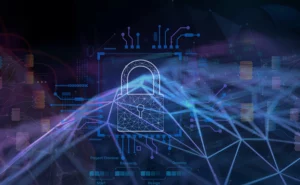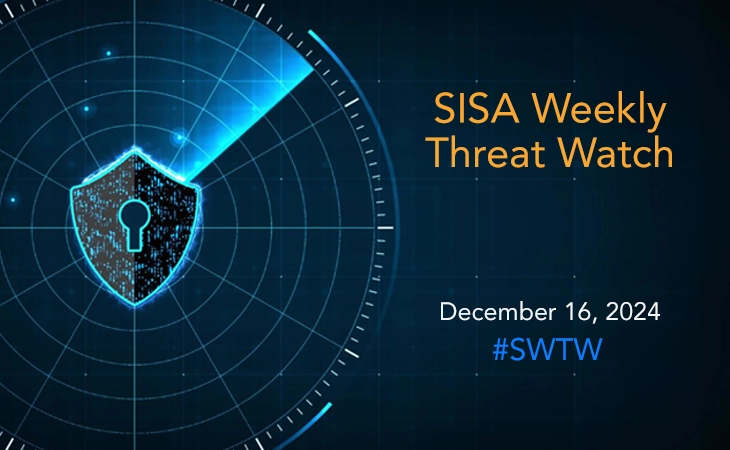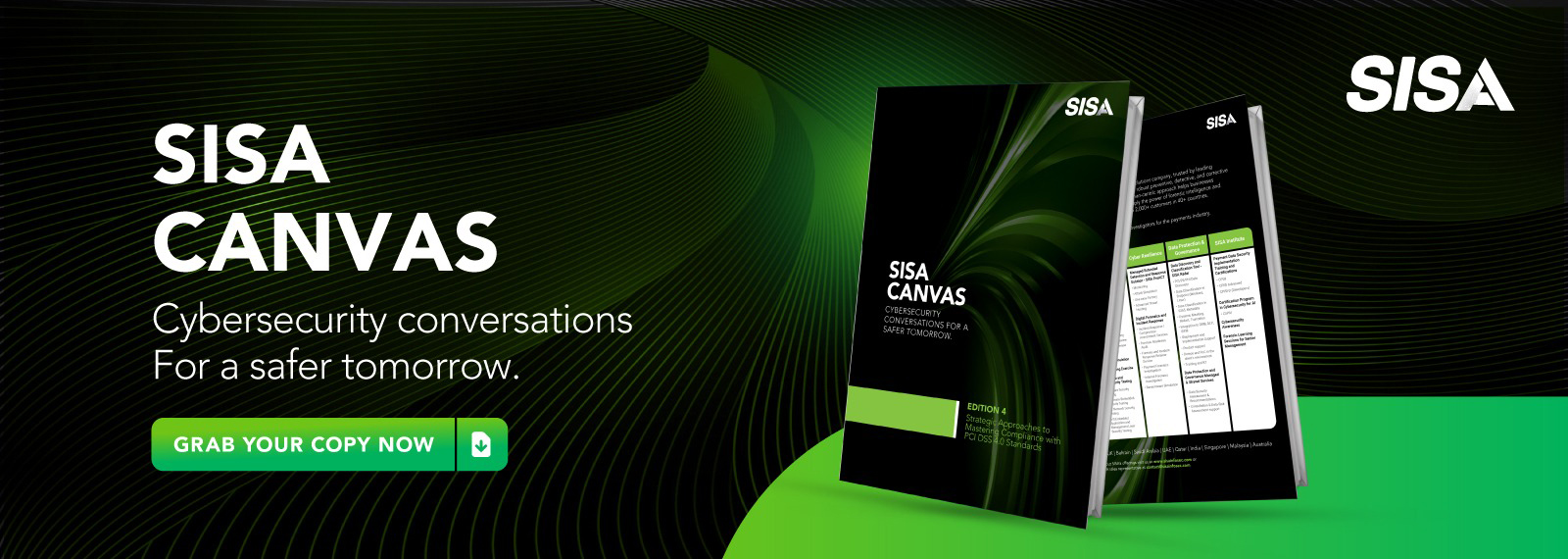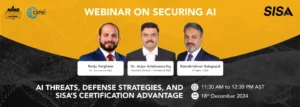

The Critical Role of Accredited Certification in Payment Security
Explore the critical role of specialized certification programs, like SISA’s CPISI, in closing the cybersecurity skills gap. Discover how ANAB-accredited certifications offer a strategic approach to enhancing cybersecurity and payment data security, addressing the urgent need for skilled professionals in the face of evolving digital threats.
The talent crisis in cybersecurity is a stark reality that cannot be ignored. As technology advances at breakneck speed, cybersecurity threats multiply, casting a long and menacing shadow over organizations worldwide. The battleground has expanded, with an ever-growing list of attack vectors that exploit the alarming skills gap in the payment security workforce. This chasm, now stretching into the millions, represents a critical vulnerability, leaving businesses exposed and struggling to fend off the barrage of cyberattacks. The talent crisis intensifies for the payment industry which faces its own unique set of challenges, grappling with the speed of technological changes, complex compliance regulations, and a pronounced shortage of skilled professionals.
This blog post aims to unravel the intricate web of cybersecurity and payment industry challenges, emphasizing the critical need for organizations to rethink their talent strategies. In an era where threats are increasingly sophisticated, focusing on attracting, retaining, and upskilling talent becomes not just a strategy but a necessity for businesses aiming to amplify their defenses.
Read on to uncover how the skills gap impacts the security of the payment industry and discover the crucial importance of investing in workforce development. Through targeted training and certification, companies can empower their teams, navigating through and mitigating a landscape riddled with threats.
Navigating the Cybersecurity Landscape: The Imperative for Skilled Talent
As technology in digital payments advances, so do cyber threats. Organizations must carefully balance adopting new technologies with building a skilled cybersecurity capability. This section delves deeper into the challenges and goals of developing a robust workforce capable of effectively navigating this dynamic landscape.
Embracing technology with security
Organizations are simultaneously navigating the adoption of groundbreaking technologies like Shadow AI and ensuring cybersecurity facilitates, rather than hinders, business growth. The challenge lies in marrying rapid tech adoption with robust security measures, demanding a balance between innovation and protection.
Continuous cycle of learning and adapting
The dynamic tech landscape necessitates a perpetual cycle of learning, unlearning, and relearning for cybersecurity professionals. Staying ahead means understanding not just the technologies but how they intersect with security practices and business goals.
The growing demand for certified cybersecurity talent
With a critical shortage of nearly 4 million cybersecurity experts, the focus is shifting from quantity to quality—emphasizing the importance of certifications. These credentials assure organizations of a professional’s up-to-date skills and understanding of complex tech environments.
Securing digital payments
As traditional cash and check methods give way to the digital payments revolution, featuring digital wallets, instant transactions, and ‘Buy Now, Pay Later’ schemes, the need for robust cybersecurity has never been more pressing. With the payments sector experiencing 400 breaches in 2022—10% of total data breaches—certified cybersecurity professionals are essential in safeguarding these evolving digital transactions against sophisticated threats.
Elevating Cybersecurity Training: The Role of Accreditation
This explosion of potential entry points for cybercriminals necessitates a skilled workforce capable of defending our digital infrastructure. However, simply having a cybersecurity professional on hand isn’t enough. To ensure they possess the necessary knowledge and expertise to combat evolving threats, accredited cybersecurity training becomes paramount. Globally recognized accreditation bodies like the ANSI National Accreditation Board (ANAB) ensure that cybersecurity training programs meet rigorous quality and standardization criteria, elevating the competence and confidence of cybersecurity professionals.
ANAB’s involvement spans various facets of cybersecurity, from certifying products and lab testing facilities to validating the expertise of individuals in the field. This comprehensive approach to accreditation ensures that every layer of our digital ecosystem, from the security of mobile transactions to the integrity of financial accounts, is protected by certified professionals. In doing so, ANAB not only enhances the reliability of cybersecurity measures but also fosters a culture of trust and assurance in the digital transactions that punctuate our daily lives, making it an indispensable component of the global cybersecurity framework.
Bridging the Skills Gap with Certification: ANAB’s Approach
The cybersecurity skills gap poses a significant challenge, requiring innovative solutions to equip professionals with the necessary expertise. ANAB leverages certification as a key strategy, promoting a scalable and flexible approach to cybersecurity training. Here are the pivotal ways ANAB contributes to bridging this gap:
- Certification over degrees: Recognizing the limitations of traditional degree-based education in meeting the urgent demand for skilled cybersecurity professionals, ANAB has championed the value of certifications as a competence-based pathway to skill development.
- Scalability and accessibility: Unlike degree programs limited by classroom size, certifications can reach an unlimited number of participants globally, making skill development more accessible.
- Global recognition: ANAB-accredited certifications are recognized worldwide, ensuring that professionals’ skills are validated according to international standards.
- Continuous job analysis: Certifications are regularly updated to reflect the current industry demands and competencies, ensuring relevance and efficacy.
- Assurance to employers: The rigorous third-party assessment process of certifications offers employers confidence in the competencies of their cybersecurity workforce.
- Flexibility in learning: Certifications allow individuals to learn at their own pace and acquire skills relevant to their career goals without the need for prolonged traditional education.
CPISI: SISA’s ANAB Accredited Certification in Payment Data Security
SISA’s Certified Payment Industry Security Implementer (CPISI) certification emerges as a pioneering solution in the realm of cybersecurity credentials, meticulously designed to fortify payment data security. Accredited by ANAB, it ensures the highest standards of excellence and recognition within the industry. CPISI stands as a beacon for those dedicated to advancing payment data security, providing a strategic edge in navigating the complex cybersecurity landscape. Here is a closer look at its distinctive attributes:
- Exclusive focus on payment security: Unlike other certifications, CPISI is dedicated to securing payment data, directly addressing a critical skill gap in the industry.
- Designed for implementers: Tailored for implementers, not just assessors, CPISI prepares professionals to secure payment ecosystems within organizations effectively.
- Broad payment method coverage: The certification covers security measures across various payment methods, from card and mobile payments to emerging technologies like fast payments.
- Regulatory compliance emphasis: CPISI stresses the importance of meeting security standards and regulatory requirements, crucial for maintaining trust and compliance.
- Targeted skill development: By focusing on practical implementation skills, CPISI aims to empower organizations to defend against security threats and protect their networks.
Conclusion
As the digital landscape continues to evolve, the importance of a robust cybersecurity framework cannot be overstated. The journey through the complexities of cybersecurity and payment security challenges reveals a clear pathway forward: the critical need for specialized, accredited certification programs. Programs like SISA’s CPISI, backed by the rigorous standards of ANAB, represent not just a commitment to excellence but a necessary evolution in the fight against cyber threats.
By embracing certification as a cornerstone of cybersecurity strategy, organizations can not only address the current skills gap but also lay the groundwork for a more secure future. In this era of unprecedented digital transformation, investing in accredited cybersecurity training is not just an option; it is imperative for safeguarding our collective digital future.
For a more detailed discussion on the critical role of accredited certification in payment security, watch our latest panel discussion on ANAB Accredited Certification: A Catalyst for Professional Excellence in Payment Security with Dr Vijay Krishna, Vice President, ANAB.
To become a part of SISA’s thriving community of payment security experts, enroll in our upcoming sessions here – SISA Cybersecurity Training and Workshop Calendar
Latest
Blogs
Whitepapers
Threat-a-Licious
Customer Success Stories

SISA is a global forensics-driven cybersecurity solutions company, trusted by leading organizations for securing their businesses with robust preventive, detective, and corrective cybersecurity solutions. Our problem-first, human-centric approach helps businesses strengthen their cybersecurity posture.
Industry recognition by CREST, CERT-In and PCI SSC serves as a testament to our skill, knowledge, and competence.
We apply the power of forensic intelligence and advanced technology to offer true security to 2,000+ customers in 40+ countries.
Company
Resources
Quick Links
Copyright © 2024 SISA. All Rights Reserved.
 USA
USA India
India APAC
APAC Middle East
Middle East Global
Global





 Facebook
Facebook Linkedin
Linkedin  X
X Youtube
Youtube







